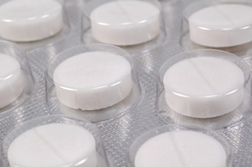 PPI drugs are most commonly used to treat gastroesophageal reflux disease (GERD), reflux esophagitis and peptic ulcer disease. They work by suppressing stomach acids—which works well for those suffering from the conditions PPIs treat so effectively.
PPI drugs are most commonly used to treat gastroesophageal reflux disease (GERD), reflux esophagitis and peptic ulcer disease. They work by suppressing stomach acids—which works well for those suffering from the conditions PPIs treat so effectively.However, the downside to the Proton Pump Inhibitor (PPI) is that a reduction in stomach acidity leaves a patient more susceptible than they otherwise might to infections. While this is not normally an issue for healthy individuals and those with strong immune systems, it can be devastating for the elderly, those who are frail or with compromised immune systems.
Dr. Chun-Sick Eom, of the department of family medicine at the Seoul National University Hospital in South Korea, noted in the December 21 edition of the Canadian Medical Association Journal, "the potential impact of acid-suppressive therapy on the risk of pneumonia is of great importance to public health," he said.
"A considerable burden of morbidity and mortality of hospital-acquired pneumonia may be attributable to this type of therapy."
Considering anywhere from 40 to 70 percent of hospital patients are prescribed PPIs, the concern is palpable. Bacterial pneumonia remains a common hospital-acquired infection and is one of the leading causes of patient death.
READ MORE PROTON PUMP INHIBITOR LEGAL NEWS
To put the findings in perspective, Dr. Eom noted that according to the study 19.7 cases of pneumonia occur in every 1,000 hospital patients who do not use acid suppressants. That ratio increases to 25 cases per 1,000 for patients who do take acid suppressants such as Proton Pump Inhibitor. The research comprised a meta analysis of 35 existing studies.
"Clinicians should carefully consider any decision to prescribe acid-suppressive drugs, especially for patients who are already at risk for pneumonia," Dr. Eom said.
Proton Pump Inhibitors have also been associated with a higher risk of PPI hip fracture, heart attacks and infections with Clostridium difficile.
